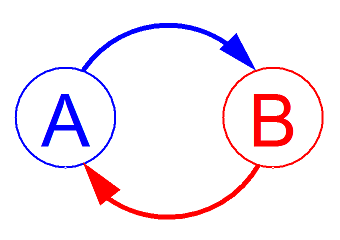Interesting tale on coaching, power dynamics, and the implications of chasing 'top' talent above all from the world of sports (Shock!), that is going down at one of the world's most famous and influential soccer clubs, Real Madrid.
If you don't follow world soccer, all you really need to know is that Real Madrid consistently ranks amongst Europe's (and the world's) best club teams. They regularly compete for Spanish league and European Champion's League (a competition open to only the top club teams from across Europe), and their roster is filled with top-level talent, most of whom feature for their national sides in the World Cup and other national contests. Simply put, Real Madrid is an elite club filled with elite players, none of whom more talented and famous than Cristiano Ronaldo, one world soccer's most talented players.
Ronaldo has won the Ballon D'Or (award for the top soccer player in the world) three times, and has served as the captain of his Portuguese national team since 2008. In short, Ronaldo is the epitome of 'top talent' - he is a soccer player sure, but his level of success and prestige could be in any field really, for the point I am (finally) about to get to.
Turns out that Ronaldo, as one of the best players in the world, is not all that keen on being 'coached', even when the coaching seems directly related to a recent performance issue. From a piece posted recently on the Irish Independent on Ronaldo's reaction to a suggestion for potential performance improvement from Real Madrid's manager Rafa Benitez:
A request from Real Madrid manager Rafa Benitez for Cristiano Ronaldo to undergo studies to improve his free-kick technique has worsened the fragile relationship between the pair according to reports in Spain. The Portuguese star is hailed as one of the finest dead ball specialists in the world, but his struggled to find the net as regularly in recent times. Ronaldo's strike against Malmo last week during the 7-0 Champions League rout of the Swedish side was his first goal from a free-kick in seven months.
According to José Félix Díaz of (Spanish paper), El Chiringuito, Ronaldo's opinion of the under pressure Spaniard (Benitez) plummeted after attempting to improve his free-kick precision by asking the Portuguese superstar to undergo a biometric study.
The reporter claims the Madrid star left the room when this was suggested.
A lot to unpack here, but let's try to tease out the important points in concise fashion:
1. Ronaldo is the best player on a very successful team
2. Ronaldo has (or late) been struggling in one specific performance area - scoring goals from direct free kicks, something at which he in the past has been very proficient
3. His manager, (essentially his boss for the rest of us), suggests some advanced work and analysis to get at the root of the issue, and (ideally) to generate some changes in Ronaldo's technique and preparation in hopes of improving his performance on free kicks
4. (Allegedly), upon hearing these suggestions from his manager, Ronaldo storms out of the room, declaring the meeting is over
Essentially, Ronaldo has ceased being coachable. His past success, stature, and position of value over replacement, (if you get rid of Ronaldo you are almost certainly not replacing him with anyone nearly as talented), have left him, at least in his view, immune to coaching or any other attempts at manager-led performance improvement. Ronaldo is Rafa Benitez' and Real Madrid's problem now, but you might one day have a similar problem with a top performer on your team. Let's admit it, after a while most of us once we hit a level of good performance are not all that excited to be told how we should be better. So what can you or any manager do when faced with this situation?
I can think of a couple of things, and also one important 'look in the mirror' type question as well.
1. Play the 'example' card - By not taking direction and coaching from Benitez, Ronaldo is also sending a message to the rest of the team that it is ok around here to not be receptive to coaching. While that may not matter to a player as talented as Ronaldo, there are not many, (really hardly any), other players of his caliber around. You can try to appeal to the star's sense of example or legacy here. You can appeal to the star's ego a little bit too by playing the 'Just try this so you can show the younger/newer/less talented than you guys what THEY need to do to get better.
2. Be patient with failure before the 'try it this way' speech - I heard a really interesting interview with the actor Alec Baldwin recently on whether or not actor's (many of them possessing giant egos like our pal Ronaldo seems to), appreciate taking direction on their performances from movie and TV directors. Baldwin's take was that he did appreciate direction, but he liked it to come naturally or more organically. He liked the ability to try a scene three or four times for the director before the director interjects with a coaching nudge, a 'how about we try it this way?' approach to getting to the director's desired outcome. The idea is that talented people can take coaching, but they sometimes need more time and space to accept the coaching than the average performer.
3. Ask yourself if you are 'managing' because you are the 'manager' - Big talents, big stars like Ronaldo are at times a threat to those ostensibly 'above' them in the organizational hierarchy. Ronaldo knows that Real Madrid can't easily replace his talent, but could fairly easily replace his manager Benitez with a similarly qualified manager if the need were to arise. Benitez knows this too. And often in sports, as is probably the case in corporate life as well, a manager will feel threatened by this power imbalance, and 'invent' coaching interventions for the star talent just to attempt to assert his/her 'official' authority in the relationship. This is the 'I am the coach, and he/she needs to listen to me no matter what' kind of thinking. But if you are the manager/boss, you need to really careful if you push this too far. Talent (still) runs the world. And you will only start to seem petty and paranoid if you continually are coaching talent that has mostly figured everything out on their own.
Most managers never have someone as great as Ronaldo to 'manage'. The interesting question in all this I think is what it really suggests about what the best managers are all about.
Is it coaxing that last 1% of performance out of a 99th percentile talent like Ronaldo?
Or is it helping raise the game of the vast majority of the 60th - 70th players on the team and bringing a few of them up into the 'top' performer category?
Think about it.
Have a great weekend!


 Steve
Steve




